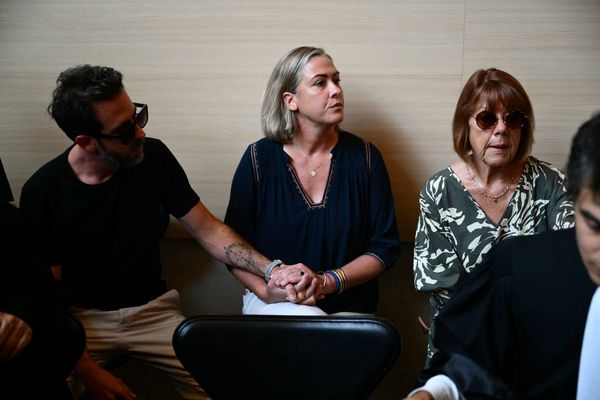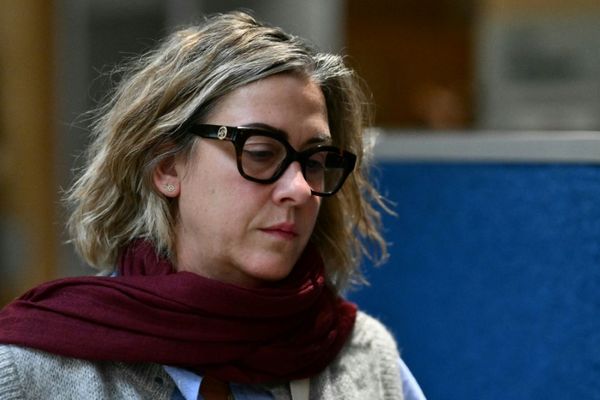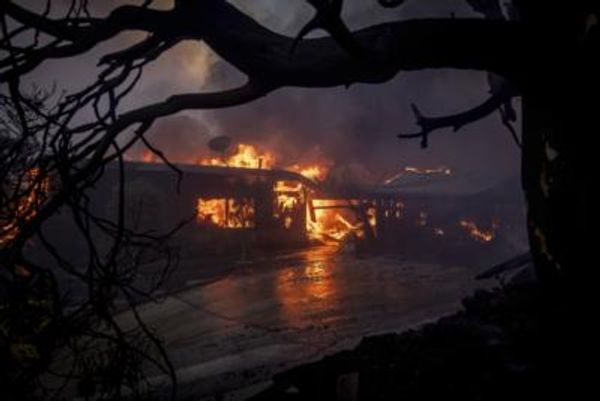
Kyiv (AFP) - The foreign ministers of Russia and Ukraine held their first face-to-face talks Thursday after two weeks of war, amid international outrage over Moscow's bombing of a children's hospital that Kyiv says killed three people, including a young girl.
But Ukraine's Dmytro Kuleba said they had made "no progress" on a ceasefire, 14 days after Russia invaded its pro-Western neighbour, triggering a conflict that has caused 2.2 million refugees to flee across Ukraine's borders.
However, Russian Foreign Minister Sergei Lavrov said Moscow wanted to continue negotiations with Ukraine.
"I want to repeat that Ukraine has not surrendered, does not surrender, and will not surrender," Kuleba told reporters after meeting Lavrov on the sidelines of a diplomatic forum in the southern Turkish resort of Antalya.
Previous lower-level talks in Belarus had produced several attempts to get civilians out of cities, many of which have failed after so-called humanitarian corridors came under attack.
Meanwhile, Russian forces neared Kyiv on Thursday, with tanks just a few kilometres (miles) from the limits of the Ukrainian capital in some places, raising fears it could soon be encircled.
Ukraine's President Volodymyr Zelensky said 35,000 civilians had managed to flee cities under Russian attack on Wednesday.
But there was little relief in the southern port city of Mariupol, where the mayor said over 1,200 civilians had died in nine days of continuous shelling that have left residents without water, heat or communications.
Zelensky shared video footage showing massive destruction at the children's and maternity hospital in Mariupol, blaming Russia for an attack he said was a "war crime".
Local officials said Thursday that at least three people were killed, including a young girl.Officials had previously said 17 people were injured, including doctors.
'Barbaric' attack
Zelensky had said the "direct strike by Russian troops" had left children under the wreckage.
Russia's foreign ministry on Wednesday did not deny the attack but accused Ukrainian "nationalist battalions" of using the hospital to set up firing positions after moving out staff and patients.
Lavrov reiterated the claim on Thursday.
Kremlin spokesman Dmitry Peskov said it would ask the Russian military for details, "since we don't have clear information about what happened there".
Video shared from the site by rescue workers showed a scene of complete devastation, with the wounded being evacuated, some on stretchers, past charred and burning carcasses of cars and a massive crater by the building.
Inside, debris, shattered glass and splintered wood littered corridors, administrative offices and bedrooms, with mattresses thrown from their frames.
The White House slammed the "barbaric" use of force against civilians, while British Prime Minister Boris Johnson called the attack "depraved".
And there was no let-up in the violence overnight, with officials in Sumy in the northeast reporting two women and a 13-year-old boy were killed in bombing in the Velyka Pysarivka region.
He said a petrol depot and a residential area had also been hit in the area where heavy fighting has been taking place.
'The Russian tanks are over there'
The Ukrainian General Staff meanwhile said Russian forces were continuing their "offensive operation" to encircle Kyiv, while pressing attacks on a string of other cities across the country.
At a deserted service station on a motorway northeast of the city, a Ukrainian officer warned vehicles not to go any further on Wednesday.
"The Russian tanks are just over there, two kilometres away," he told one car, ordering it to turn round and go back.
"Drive in a zig-zag to avoid their shots," he advised.
On Wednesday, at least 35,000 civilians were able to leave the cities of Sumy, Enerhodar and areas around Kyiv, Zelensky said.
He said he hoped the evacuations would continue on Thursday with three more routes set to open out of Mariupol, Volnovakha in the southeast and Izium in eastern Ukraine.
Russia's war has sent around 2.2 million refugees across Ukraine's borders in what the United Nations has called Europe's fastest-growing refugee crisis since World War II.
The conflict has raised fears of a nuclear accident in a country with major nuclear plants and the site of the Chernobyl disaster.
The UN's atomic watchdog, the International Atomic Energy Agency, said Wednesday it saw "no critical impact on safety" at Chernobyl, location of the world's worst nuclear disaster in 1986, despite a loss of power there.
But it warned it was not receiving updates from either Chernobyl or Zaporizhzhia, Europe's largest nuclear plant, which is also now under Russian control.
US aid passes House
The United States meanwhile rejected Russian claims that it was involved in bioweapons research in Ukraine, and warned Russia could be preparing to use chemical or biological weapons in the war.
Washington has strongly backed Ukraine, leading the push for tough international sanctions and sending weapons and other aid.
But it has ruled out enforcing a no-fly zone and rejected a Polish plan to transfer fighter jets via a US air base for fear of being drawn into the conflict directly.
Washington has however beefed up defences in Poland, where it said Wednesday it was sending two new surface-to-air missile batteries.
And Britain said it was preparing to send more portable missile systems to help Ukraine, in addition to more than 3,000 anti-tank weapons sent so far, while Canada pledged an additional $50 million of military equipment.
The US House of Representatives green-lit a spending package including nearly $14 billion for Ukraine and allies in eastern Europe.It will now need to be rubber-stamped by the Senate.
The International Monetary Fund has also approved a $1.4-billion emergency package for Kyiv to provide "critical financial support."
Western nations and allies are also trying to squeeze Moscow with unprecedented sanctions.
British Foreign Secretary Liz Truss on Wednesday urged the entire G7 to ban Russian oil imports, saying the world's top economies should "go further and faster" in punishing Moscow for invading Ukraine.
But some nations are wary, with French Economy Minister Bruno Le Maire warning the current spike in energy prices could produce effects comparable to the 1973 oil shock.
burs-sah-ar/spm







